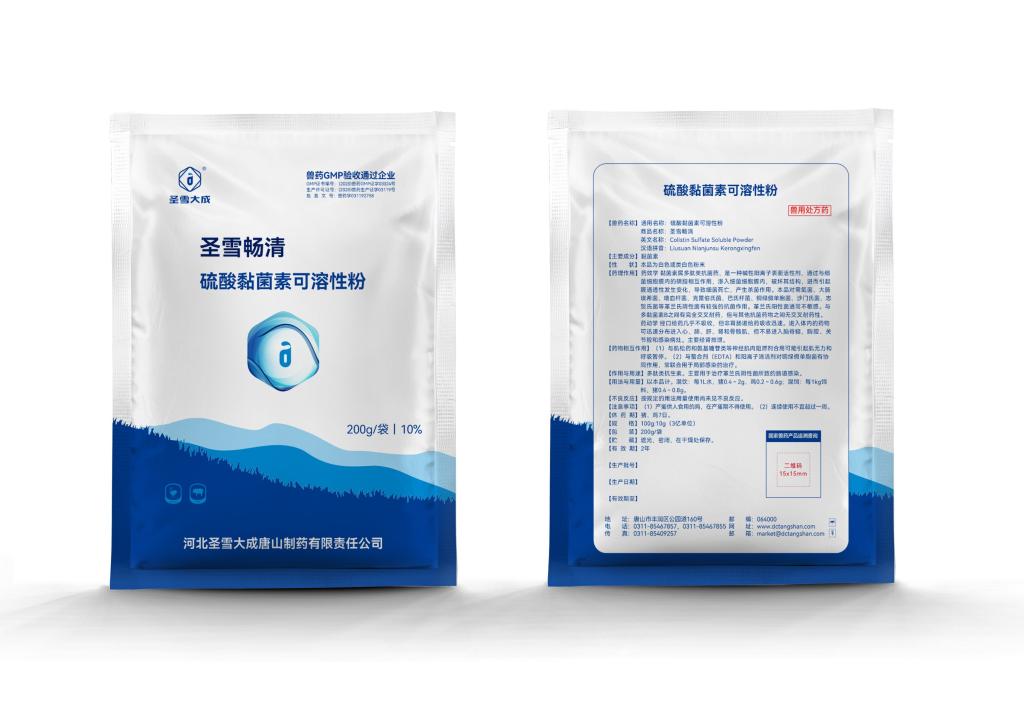Tel:+8618231198596

News
 CONTACT
CONTACT
 CONTACT
CONTACT
- Linkman:Linda Yao
- Tel: +8618231198596
- Email:linda.yao@dcpharma.cn
- Linkman:CHARLES.WANG
- Department:Overseas
- Tel: 0086 0311-85537378 0086 0311-85539701
News
Current Position:
Home >
News
>Public Awareness: Communicating Responsible Colistin Sulfate Soluble Powder Use.
Public Awareness: Communicating Responsible Colistin Sulfate Soluble Powder Use.
TIME:2024-01-11
1. Introduction:
Public awareness is a linchpin in the responsible use of colistin sulfate soluble powder, an antibiotic crucial in veterinary medicine. The public's understanding of the implications of antibiotic use in agriculture directly influences consumer choices and shapes the discourse surrounding food safety. This article explores the significance of communicating responsible colistin sulfate use, considering the current state of public awareness, challenges in communication, effective strategies, and the pivotal role of consumers in driving positive change.
2. The Importance of Public Awareness:
Influencing Consumer Choices:
Consumers wield significant influence through their purchasing choices. Informed consumers who understand the complexities of antibiotic use in animal agriculture are more likely to support practices that prioritize responsible colistin sulfate use. Public awareness is, therefore, a catalyst for driving demand for sustainably produced and responsibly sourced animal products.
Supporting Antibiotic Stewardship:
Public awareness is integral to antibiotic stewardship efforts. When individuals understand the potential risks associated with antibiotic overuse, they are more likely to support initiatives that promote responsible antibiotic use in agriculture. This collective awareness is essential for the success of global efforts to combat antibiotic resistance.
3. Current State of Public Awareness:
Varied Levels of Understanding:
The current state of public awareness regarding colistin sulfate soluble powder is varied. While some individuals may be well-informed about the implications of antibiotic use in agriculture, others may have limited knowledge. Bridging this knowledge gap is essential to create a more informed and engaged public.
Media Influence and Misinformation:
Media plays a significant role in shaping public perceptions. However, misinformation and sensationalized narratives can lead to misconceptions. Responsible communication is crucial to counteract misinformation and provide accurate, science-based information to the public.
4. Challenges in Communicating Complex Information:
Scientific Complexity:
Communicating the complexities of antibiotic use, resistance, and the intricacies of colistin sulfate soluble powder can be challenging. Scientific information needs to be translated into accessible language to ensure that the public grasps the nuances of these concepts.
Balancing Detail and Accessibility:
Finding the right balance between providing sufficient detail and maintaining accessibility is crucial. While some individuals may seek in-depth information, others may prefer simplified messages. Effective communication strategies must cater to diverse information needs within the public.
5. Effective Communication Strategies:
Transparency and Open Dialogue:
Transparency is key in fostering public trust. Open dialogues between regulatory bodies, veterinarians, farmers, and the public contribute to a shared understanding of the challenges and benefits associated with colistin sulfate use. This transparency builds confidence in the regulatory frameworks governing antibiotic use.
Utilizing Multiple Communication Channels:
Diverse communication channels, including social media, traditional media, educational campaigns, and community outreach, can amplify the reach of awareness initiatives. Utilizing multiple channels ensures that information reaches various demographics and engages a broader audience.
6. The Role of Consumers in Promoting Responsible Practices:
Informed Decision-Making:
Informed consumers are empowered to make choices aligned with their values. Those aware of the responsible use of colistin sulfate can actively seek products from producers who adhere to sustainable and ethical practices, thereby encouraging responsible antibiotic use in agriculture.
Advocacy and Demand for Change:
Consumer demand has the potential to drive industry changes. Advocacy for responsible colistin sulfate use, coupled with preferences for products sourced from farms committed to antibiotic stewardship, can incentivize producers to adopt more sustainable and ethical practices.
7. Case Studies and Success Stories:
Examining case studies and success stories provides tangible examples of the impact of public awareness campaigns and responsible colistin sulfate use. Real-world examples showcase the positive outcomes of informed consumer choices and demonstrate the potential for change when individuals are engaged and empowered.
8. Future Directions and Collaborative Efforts:
The future of public awareness regarding colistin sulfate use involves collaborative efforts between government agencies, industry stakeholders, healthcare professionals, and advocacy groups. Ongoing educational campaigns, research initiatives, and open dialogue contribute to a continuously evolving and well-informed public discourse.
9. Ethical Considerations:
Communicating responsible colistin sulfate use necessitates ethical considerations. Honest and transparent communication, avoiding fear-based messaging, and respecting diverse perspectives contribute to an ethical approach that prioritizes the well-being of individuals, animals, and the environment.
10. Conclusion:
In conclusion, public awareness is instrumental in shaping responsible colistin sulfate use in animal agriculture. The public's understanding of antibiotic use, resistance, and the implications for food safety directly influences consumer choices and industry practices. Effective communication strategies, transparency, and the active role of consumers are essential components of fostering a collective commitment to antibiotic stewardship. As we navigate the complex landscape of antibiotic use in agriculture, public awareness stands as a powerful tool for driving positive change and ensuring the sustainable and responsible use of colistin sulfate in the production of the food we consume.
- Tel:+8618231198596
- Whatsapp:18231198596
- Chat With Skype







